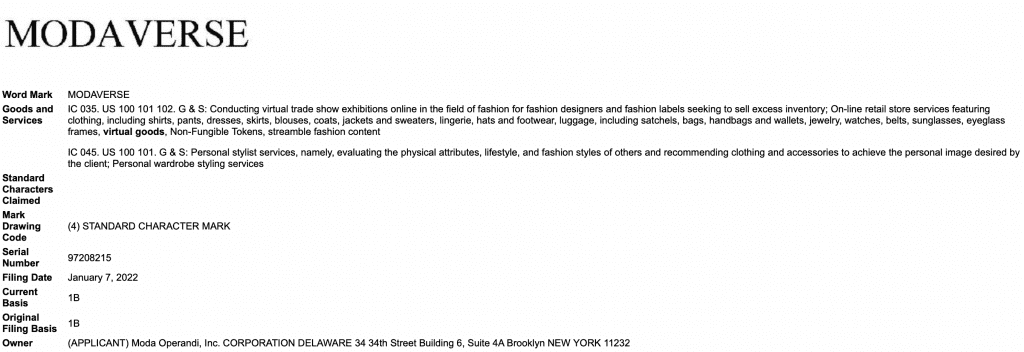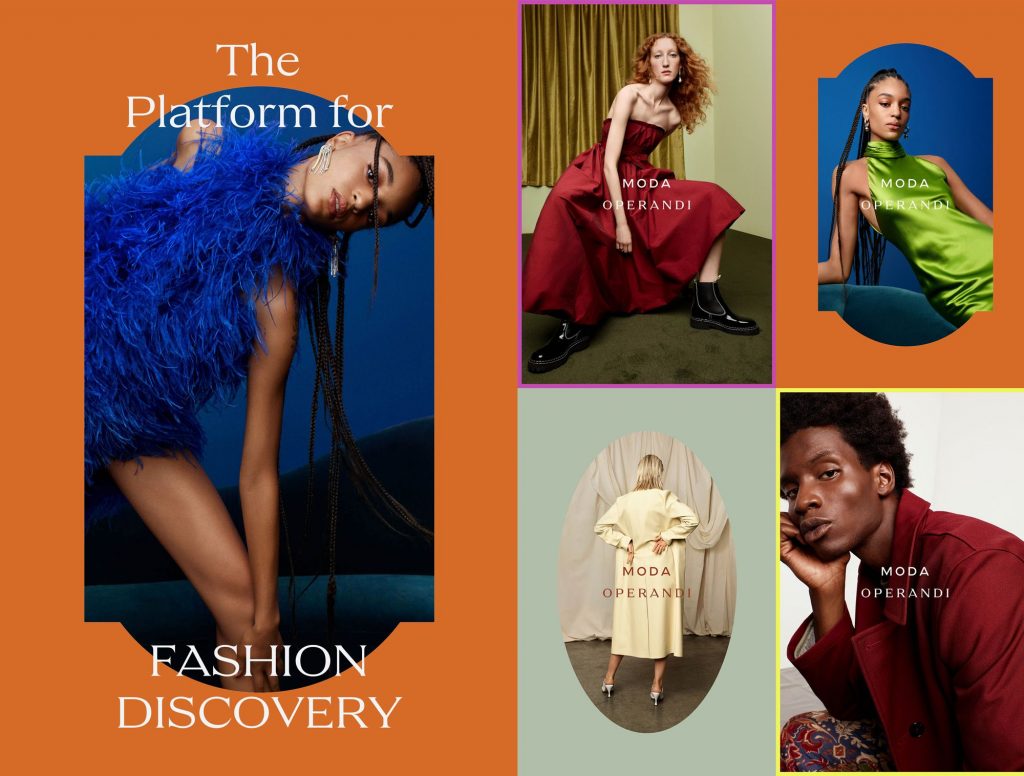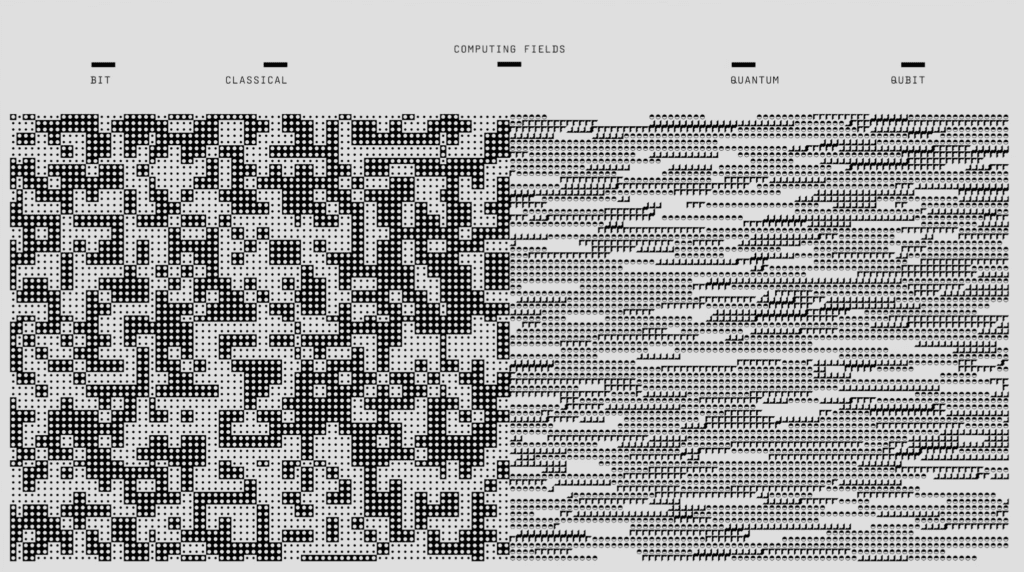Consumer goods companies are not wasting much time when it comes to thinking – and strategizing – about branding in the metaverse. While the burgeoning combination of virtual reality, augmented reality, video, social media, and the web is still notably far from fully coming into fruition (thereby, raising and leaving open questions about what this virtual ecosystem will ultimately look like, what the products/experiences within it will eventually consist of, what protections are necessary, etc.), fashion, luxury, and sportswear companies and their legal counsels are, nonetheless, racing to make their marks known by way of trademark applications for registration, and in a growing number of cases, actual endeavors in the virtual space.
The overarching attention from brands on the virtual world – which has been led in part by the likes of Louis Vuitton, which partnered with League of Legends back in 2019 to offer up in-game skins and “real life” merch, and Moschino, which debuted a tie-up with the Sims the same year, as well as moves from Nike, Gucci, Balenciaga, and others – is not being lost on at least a couple of retailers that appear to be considering how they can adapt their businesses to meet rising consumer interest in the metaverse and potentially share in some of the $50 billion market that it may become by 2030, according to Morgan Stanley projections.
One striking metaverse-related trademark application for registration suggests that Moda Operandi may be plotting how it can bring its some variation of its unique model to the metaverse. According to an application filed with the U.S. Patent and Trademark Office by counsel for Moda Operandi last week for “MODAVERSE,” the New York-based high fashion and luxury retailer is looking – on an intent-to-use basis – at “conducting virtual trade show exhibitions online in the field of fashion for fashion designers and fashion labels seeking to sell excess inventory,” as well as “on-line retail store services featuring clothing … virtual goods, non-fungible tokens, streamable fashion content,” all of which falls under Class 35.

Moda Operandi may actually prove to be a pioneering player when it comes to the offering up of high fashion in the metaverse given its track record for innovating in the e-commerce space. After all, the Lauren Santo Domingo co-founded company first made its name in 2010 by bringing runway garments and accessories to discerning consumers via pre-order-based online trunk shows. As Fast Co. put it back in 2012, Moda removed the typical six-month waiting period that existed between the runway and “real world,” by offering its members “access to 36-hour pre-sales of collections just days after they appear on the runway,” thereby, “guarantee[ing] its customers access to items that may not be purchased in mass by department store buyers.”
It is not immediately obvious if Moda Operandi will, in fact, make a metaverse move, or what such a move will look like if it does. But due to its role as a “platform for discovery” for luxury consumers, and both “new and established designers,” as Santo Domingo put it this past spring, paired with its established appetite for innovation in the digital fashion and luxury realm, and its roster of more than 1,000 brand partners, at least some of which just might want assistance in venturing into the virtual, any moves that Moda does make would likely serve as an interesting roadmap for other high-end retailers.
Elsewhere in the market, resale marketplace StockX, which is reportedly in talks to make its initial public offering at some point this year, recently filed a handful of metaverse-focused trademark applications of its own that seem to indicate that it is also planning to take its operations and expand them into the virtual world. The marks, themselves, include the StockX word mark, a stylized version of its name, the letter X both in plain black, as well as “in a tie-dye-like pattern,” and “The Current Culture Marketplace.”

As for potential uses that the marketplace set out in connection with the marks, they include those in Class 9 (“Downloadable software in the nature of a mobile application that allows users in a digital virtual environment to search for, find, research, analyze, compare, sell, and purchase digital goods and services,” as well as “downloadable virtual goods,” among other things); Class 35 (for the “Provision of an online marketplace for buyers and sellers of digital virtual goods and services”); and Class 41, which covers “entertainment services, namely, providing online, non-downloadable virtual clothing, shoes, jewelry, handbags,” etc.
(Given that the goods/services listed in its newly-filed applications for registrations do not differ too significantly from the workings of its current marketplace-driven model, at least not in Classes 9 and 35, it is worth noting that StockX may not need to add additional trademark registrations to its existing arsenal in order to cover its metaverse activities, as companies’ trademark portfolios will probably cover the most predictable of their activities in the metaverse. StockX currently maintains trademark registrations in Class 9 and 35 for the same general uses – albeit, without any mention of virtual goods or NFTs.)
The two retailers’ filings come as brands ranging from Nike to champagne-marker Ace of Spades have filed trademark applications for registration with a marked metaverse focus in further of a larger influx of “fresh approaches to online creativity and commerce” from brands and retailers, “as non-fungible tokens, gaming ‘skins,’ and virtual fashion edges closer to the mainstream” that McKinsey says it expects to come in 2022, with the consultancy stating that existing efforts in the metaverse “will gather pace” over the course of the year.
In this vein, and in light of the fact that it is not yet clear what will prove to be the prevailing approaches for brands in this space (both in terms of products/services and also in terms of trademark filings and treatment of such applications by the U.S. Patent and Trademark Office and other international trademark offices where similar applications are beginning to be lodged), we are aiming to consistently keep you abreast of relevant developments.











